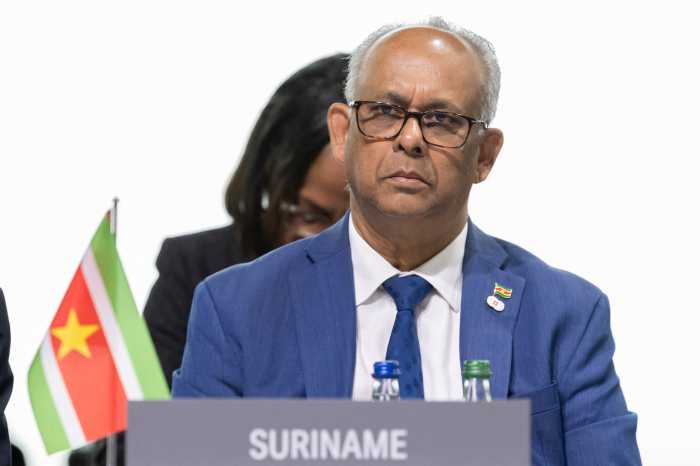The review of the operations of the Caribbean Single Market and Economy system has long been overdue, but judging from the results of a high level workshop held in Guyana at the weekend, there is widespread dissatisfaction with the lack of enough progress made over the years, the slow pace of implementation of decisions in particular.
There were outright expressions of frustration from people across the political and administrative spectrum ranging from Prime Minister Ralph Gonsalves of St. Vincent and the Grenadines to former Jamaican Prime Minister Bruce Golding to incumbent Caribbean Community Secretary General Irwin LaRocque. Each and every one basically said that the status quo can’t be allowed to continue for much longer.
The review of things relating to the single market and economy comes just three weeks before regional leaders meet for their main summit in Jamaica. The results of the weekend review in Guyana are on the agenda for discussion but few appear to have faith that any significant changes will be made in the coming months.
PM Gonsalves, one of the longest serving leaders in the system and treasured for his institutional memory of things CARICOM, said the major differences in sizes of economies in the smaller Eastern Caribbean sub grouping compared to Jamaica, Trinidad and Guyana, means that the challenge for the region to operate as a single economy will be formidable.
“There are unevenly yoked units and the region is not going to move towards deeper integration if we remain so unequally yoked. Those who have a greater advantage in the integration movement need to appreciate that, and lessen the extent of the unequal yoking. These are practical matters of life, living, production and reproduction,” he said, arguing for a more level playing field for the smaller economies.
Like other speakers, Gonsalves also said there is need for a reality check when it comes to free movement of people as the reality is that there are lingering fears by some nations about being swamped by migrants from other member nations.
“Let us be practical about this,” he argued, noting that governments in some nations take measures to protect local jobs and businesses despite the fact that free movement of people in the bloc is an entrenched right in the single market and economy system. “Let us be honest about that,” he said, pointing to the fact that at least one government had to be taken to court to allow a Jamaican national to enter Barbados without being hassled and profiled. There are other negative instances relating to free movement in CARICOM.
Meanwhile, second term Secretary General LaRocque said there is a large pile of unimplemented decisions dating as far back as far as 2004.
“We take too long to get things done. Why must it take so long for us to get vital things done? It is either we get it done or move on to other issues. We need to move the agenda along much faster. The time it takes to get things done is a cost to the private sector and it’s a cost in terms of the credibility to the community at large.”
Bruce Golding blamed governments rather than the Guyana-based secretariat for not implementing and or enforcing decisions, suggesting that pointed fingers at secretariat officials are misplaced.
“Credit must be given to the secretariat for the considerable efforts it has made to push the implementation process and assist member states to fulfill their obligations. The secretariat is often made the scapegoat for CARICOM’s failures. It is unfair to the secretary-general and his staff. I would not want his job for five times his salary. The frustration that it must certainly cause would be hazardous to my health. Implementation is primarily the responsibility of national governments. The secretariat dare not even appear to be inserting itself in the decision-making or implementation process of member states,” he contended.
Golding had done a review of Jamaica’s role in CARICOM to determine whether island interests are well served by the current system in the grouping of 15 nations. His report could also make the agenda at the July 4 summit in Jamaica.


























